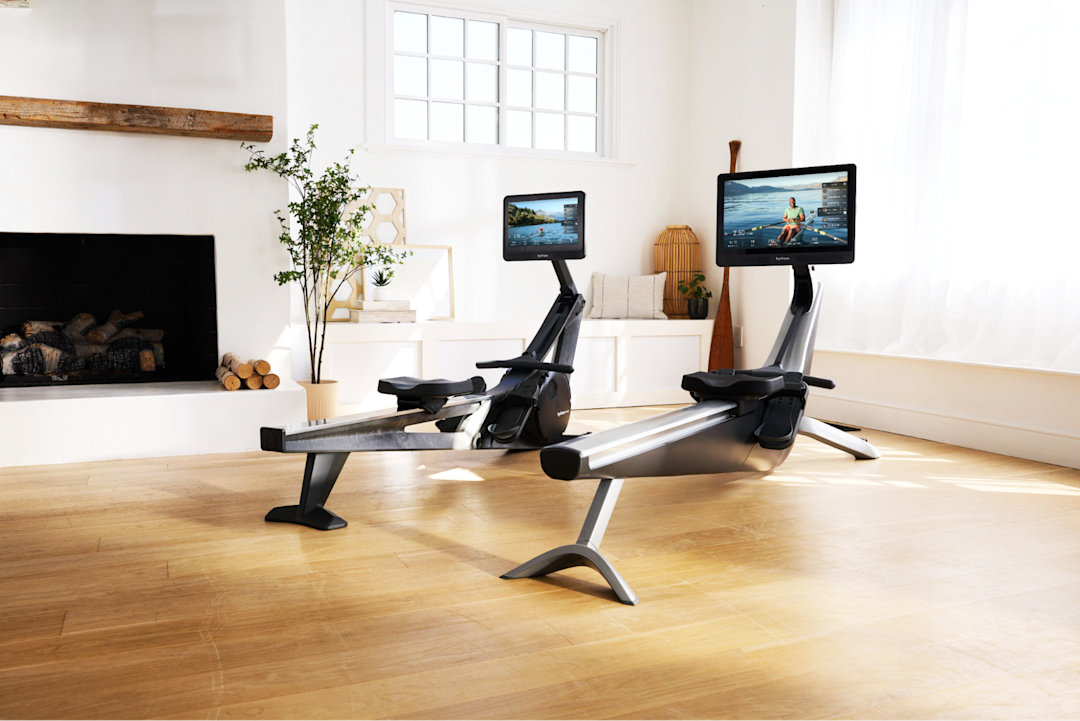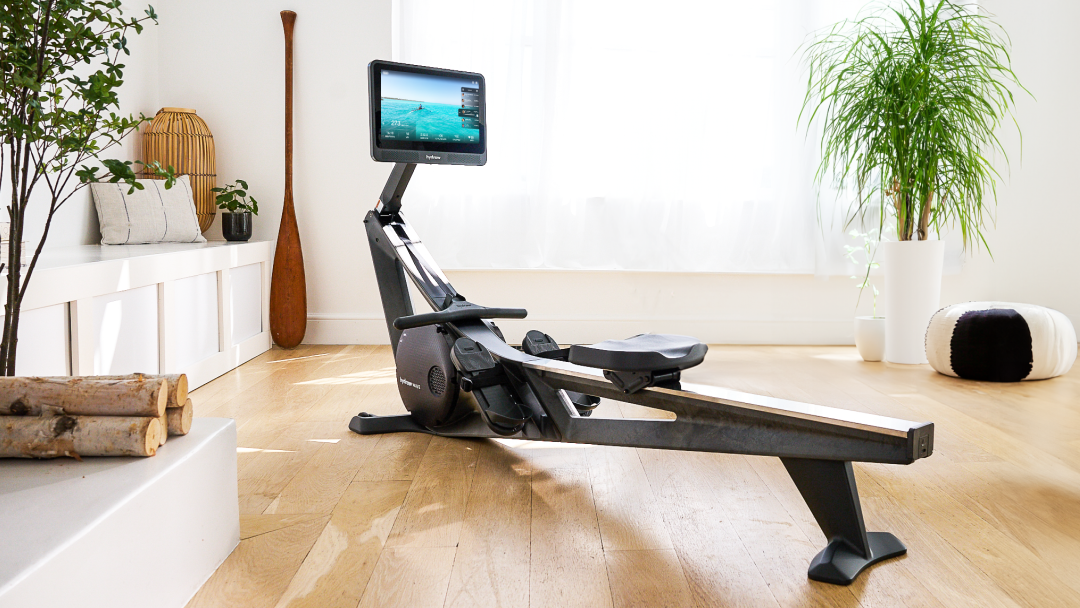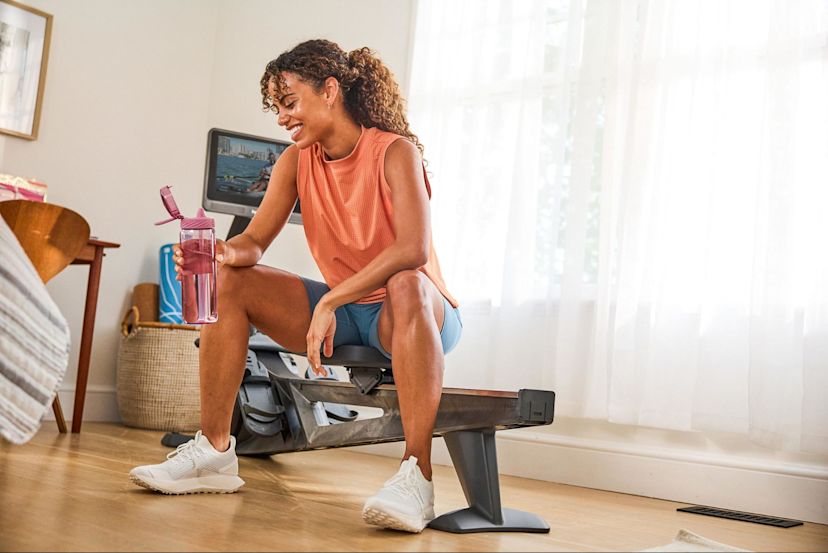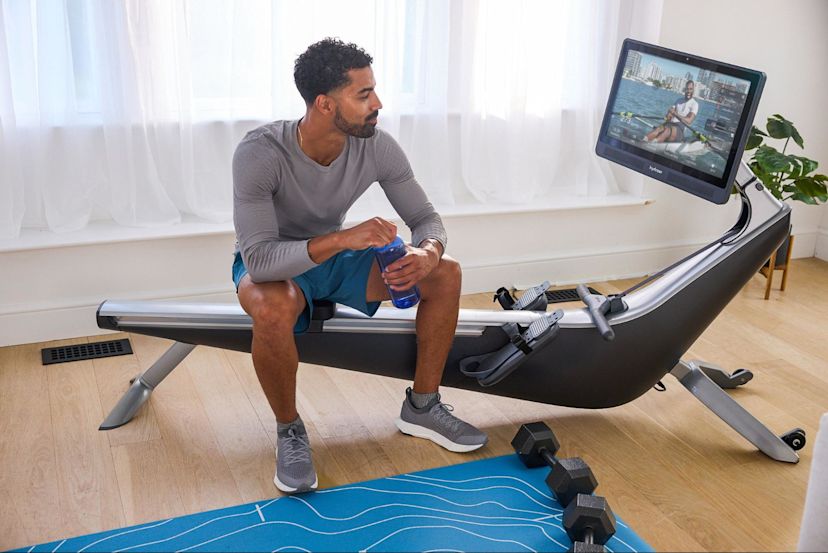Are Rowing Machines Loud?

If you are interested in investing in a rowing machine, one of the biggest questions you likely have is around how loud rowing machines are and whether the noise level will be tolerable if you have one in your home.
In this blog, we’ll talk about what noise level you can expect from rowing machines, how loud different types of rowing machines are, and which ones you should prioritize if you’re in need of a quieter experience.
Let’s dive in!
So, how loud are rowing machines?
All rowing machines generate some level of noise due to their resistance mechanisms, and this piece of equipment sits in the middle when compared to the noise generated by other types of cardio fitness equipment, ranging from quieter stationary bikes and ellipticals to noisier treadmills.
For some people, noise may not be an issue. But if you live in an apartment or share a home with a partner, family, or roommates, it’s likely the sound coming from your machine will be a major factor in whether it’s the right piece of equipment for you.
If noise level is important to you, the sound coming from your rowing machine will largely depend on the type of rower you invest in, with electromagnetic, magnetic, and hydraulic rowing machines making less noise than air or water rowers.
Below, we’ll dig into examples of quieter types of rowing machines and louder types of rowing machines so you’ll know what to expect from each kind.
Examples of quieter types of rowing machines
If you are looking for a quieter rowing machine, you’ll want to consider electromagnetic rowing machines, magnetic rowing machines, or hydraulic rowing machines. Learn more about why these are known for making less noise below:
1. Electromagnetic rowing machines
Electromagnetic rowing machines like Hydrow are known for being quieter because the resistance in the machine is generated by an electromagnetic field, removing the need for actual physical contact or friction with a flywheel or other moving parts. This frictionless technology creates a quieter workout than traditional types of rowing machines, which typically use a noisy air fan or water tank to create resistance.

Considering a Hydrow rowing machine? We tackle all your burning questions in our FAQ guide.
2. Magnetic rowing machines
Similar to electromagnetic rowing machines, magnetic rowing machines use a magnet to create resistance on the flywheel so that when a user pulls the handle, the flywheel spins and displaces air around it. The absence of friction between the moving parts significantly reduces noise.
Do know that both magnetic and electromagnetic rowing machines won’t necessarily be fully silent, but they are among the quietest types of rowing machines on the market.
3. Hydraulic rowing machines
Hydraulic rowing machines create resistance from hydraulic cylinders with either air or fluid attached to the handle. When the handle is pulled, you’re pulling against the air or fluid. Since this mechanism doesn’t involve the moving parts making direct contact with each other (unlike chain or flywheel-based rowers), there’s minimal friction and, consequently, less noise.
Additionally, the movement of the fluid inside the hydraulic pistons is naturally dampened, meaning it flows smoothly without creating loud or jarring sounds.

Did You Know?
Over 90% of Hydrow members are still active one year later.
Examples of louder types of rowing machines
If noise isn’t a concern for you, there are other types of rowing machines on the market that are known for being on the louder side, including air rowing machines and water rowing machines. Learn more about how these machines work below:
1. Air rowing machines
The resistance in an air rowing machine is created by a fan or flywheel that spins as you pull the handle. The faster and harder you row, the faster the flywheel spins, moving the air. This movement of air through the flywheel creates a whooshing or rushing sound.
The chain and other moving parts in air rowers can also contribute to the noise, especially if they aren’t properly maintained. The chain can produce a slight rattling or clinking sound during operation.
2. Water rowing machines
The resistance in water rowing machines is created by paddles moving through water inside a sealed tank. As you pull the handle, the paddles churn the water, producing a splashing or whooshing sound similar to rowing on an actual body of water. The noise level will increase as the intensity of your rowing does.
Some people consider the sound of water rowing machines to be more natural and soothing, similar to the sound of waves or flowing water. However, it is still a noticeable noise compared to the quiet operation of magnetic or electromagnetic rowers.
Find the right rowing machine for you
Looking for a quieter rowing machine for your home? Be sure to check out Hydrow! All models of Hydrow utilize software-driven electromagnetic resistance, making them relatively quiet when compared to alternative types of rowing machines. While Hydrow isn’t a completely silent experience, it’s extremely quiet when compared to more traditional technologies, making it easier to hear instruction from our Athletes and the music with your rowing workout.
Hydrow's advanced features and quiet resistance technology give you the ability to row at any hour without disturbing the household or your neighbors. If you’re interested in a Hydrow rowing machine, learn more about our different models today!

Explore Hydrow
Learn more about how you can transform your fitness routine with a rowing machine.



